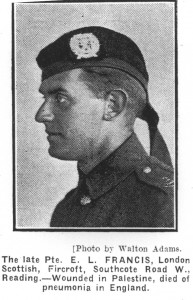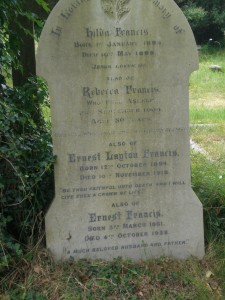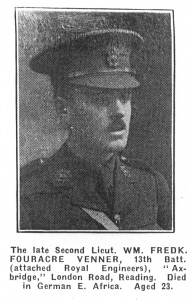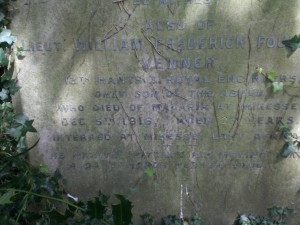Walter Charles Freeman
Private 7405
2nd Battalion Essex Regiment
Division 14
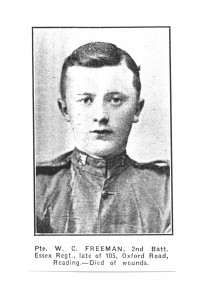 |
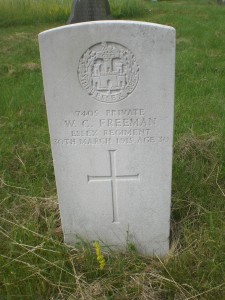 |
Walter Charles Freeman was the eldest son of Walter and Ann Freeman of 1, The Mount Caversham. His father was a local tailor who ran his business from 105, Oxford Road. His death was extensively reported in the Chronicle April 9th 1915.
He died at hospital in Whitechapel from wound received on the 16th February 1915 . He was 30 years old.
Walter had served nearly 12 years in the army before emigrating to Vancouver where he had his own business. He was in the Army Reserve when the war broke out and was immediately called up he went to the front in September 1914. Walter had fought in several engagements and had a number of narrow escapes before being wounded.
He was injured at night by a bullet which passed through his neck and jaw breaking his teeth and coming out just below his eye bone. After being I hospital in France for a couple of weeks he was transferred to London. Everything possible was done for him but from the first his injuries were of such a serious nature and he eventually died of septic poisoning.
Walter had been educated at the British School, Southampton Street. He was well liked and very popular with his comrades in the Regiment. In the trenches he was described as jovial and brave.
He was buried with full military honours. One hundred soldiers of the 8th Berkshire Regiment were in attendance and they provided a firing party that followed the cortege in procession. Three volleys were sounded over the grave and the “Last Post” was played.
The brother of Walter Freeman, H.G. Freeman of the King’s Liverpool Regt. was notified as wounded, no other information has been obtained.
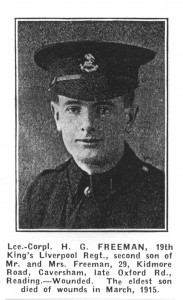 |
